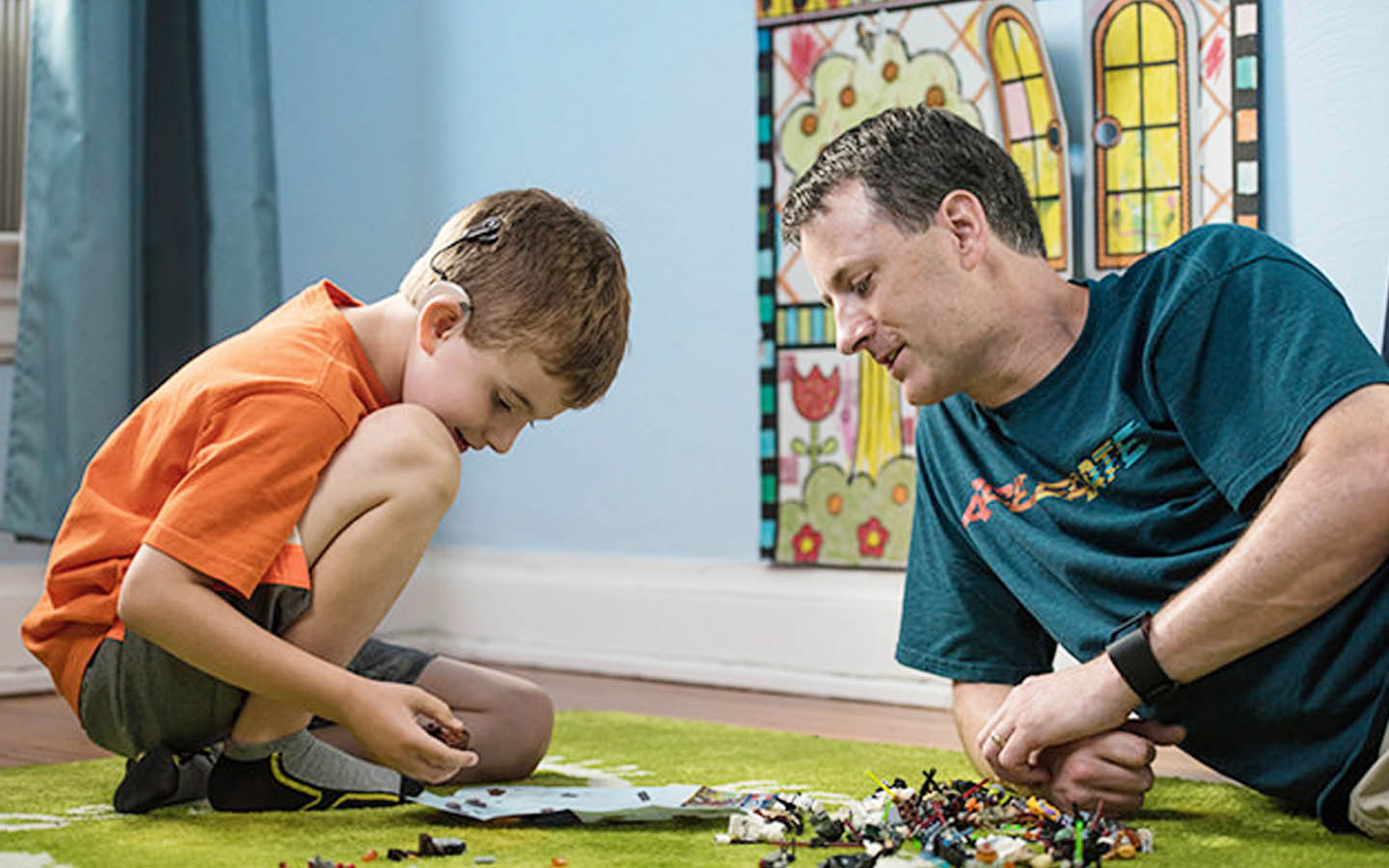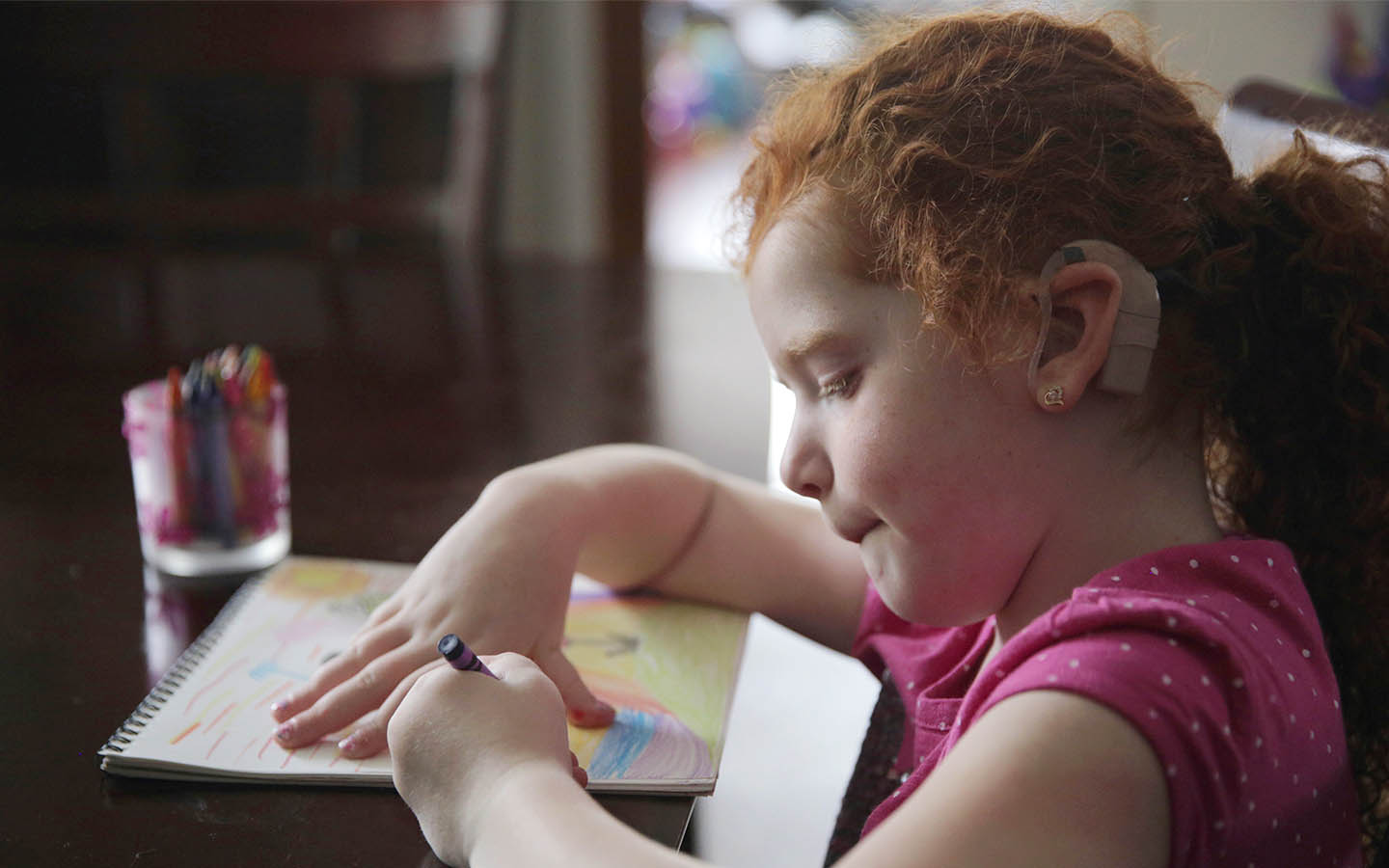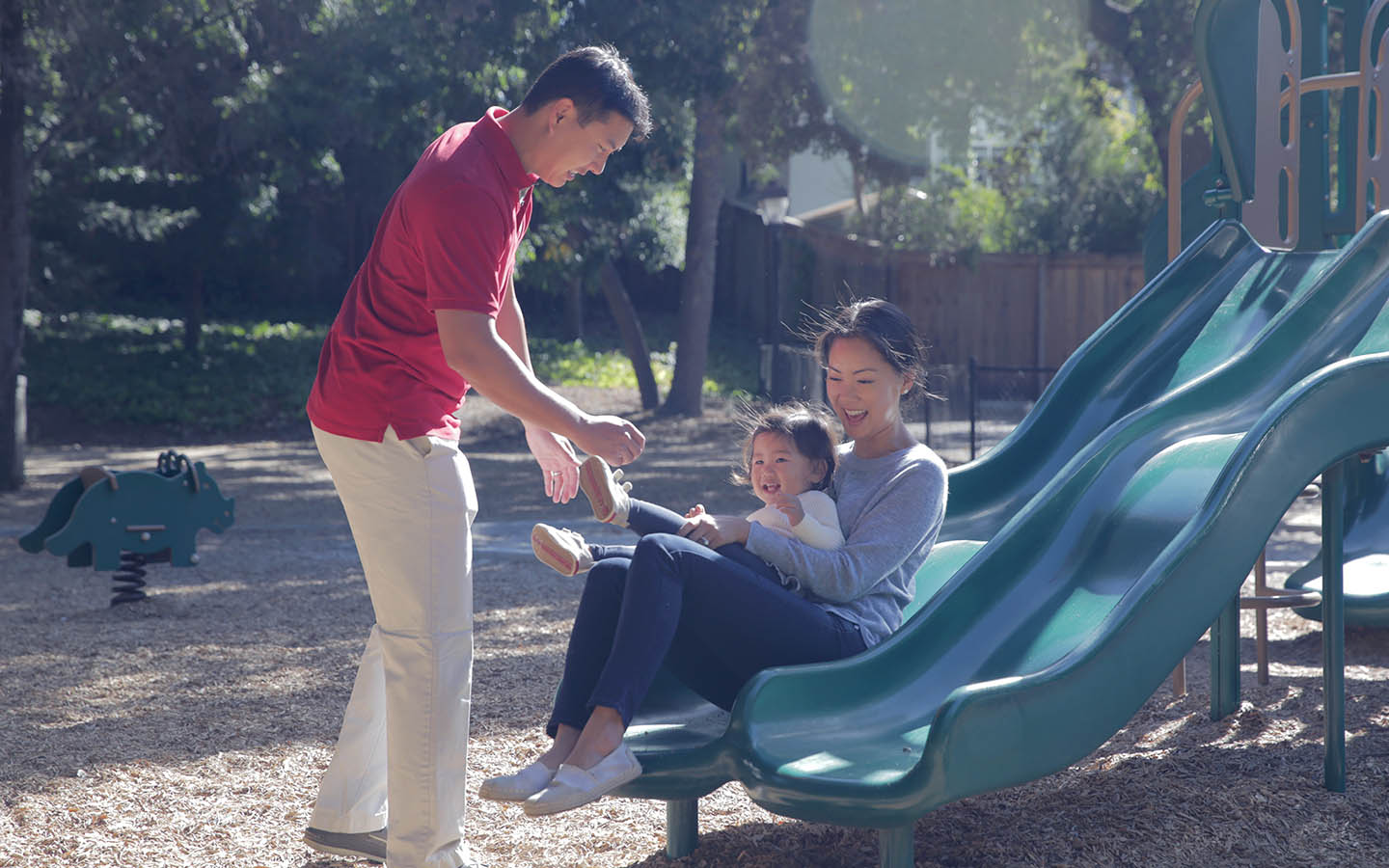Early intervention for children
If your child has hearing loss, getting treatment sooner rather than later has many benefits, including laying the foundation for fundamental language and social skills.

What you'll find on this page
- Discover the link between hearing and brain development
- Learn why treating hearing loss early helps children at school
- Hear from parents who acted early
Why treating hearing loss in children early is important
You want the best for your child throughout their life and choosing the right partners is critical to your child’s success. We take a team approach when developing products and services that are designed to provide your child’s best hearing today and always so your child can hear you say, "I love you".
Being able to hear lets your child enjoy those special moments with you. But did you know hearing is also important for developing the language and social skills that help children succeed at school and beyond?
Hearing and brain development
If your child has hearing loss, acting as early as possible is important. Research shows that children who are implanted early can learn to speak faster than those implanted later in life. In fact, performance scores in children implanted younger are closer to scores of normal hearing children.1
New evidence shows that early treatment could put your child’s development on par with their hearing peers – giving them the opportunity to excel in life.2,3
Patrick received a Cochlear hearing solution the week of his first birthday. At age 4, his school tests showed his language skills were on par with his peers. He now wants to be a veterinarian. Watch his story below.
"He gets to go to the gifted program. For someone who has hearing loss, it's even more amazing!"
- Parents of Patrick H, Cochlear™ Nucleus® recipient
Hearing at school
Addressing your child’s hearing loss early can help enormously when they go to school. Benefits may include:
- Attending mainstream schools
- Better communication with teachers and classmates
- Making new friends easily
Early Hearing Detection and Intervention (EHDI) Provincial Programs
Some provinces in the Canada have an EHDI program to identify children with a permanent hearing loss before three months of age and to provide intervention services before six months of age.
Learn more about EDHI provincial programs.
Early intervention resources
- Early Hearing Detection and Intervention programs in Canada: infanthearingcanada.ca
- Canadian Accessibility Act: canada.ca/en/employment-social-development/programs/accessible-people-disabilities.html
- Canadian Academy of Audiology : canadianaudiology.ca
- Speech-Language and Audiology Canada: sac-oac.ca
- Canadian Paediatric Society: cps.ca
- Hearing Foundation of Canada: hearingfoundation.ca
Find a Hearing Implant Specialist near you
Disclaimer
Please seek advice from your health professional about treatments for hearing loss. Outcomes may vary, and your health professional will advise you about the factors which could affect your outcome. Always read the instructions for use. Not all products are available in all countries. Please contact your local Cochlear representative for product information.
Views expressed are those of the individual. Consult your health professional to determine if you are a candidate for Cochlear technology.
For a full list of Cochlear’s trademarks, please visit our Terms of Use page.
References
- Niparko JK(1), Tobey EA, Thal DJ, Eisenberg LS, Wang NY, Quittner AL, Fink NE, CDaCI Investigative Team. Spoken language development in children following cochlear implantation. JAMA. 2010 Apr 21; 303(15):1498-506.
- Effects of Hearing Loss on Development. American Speech-Language-Hearing Association (ASHA) [Internet]. 2013 [Cited 2013 July]. Available from: asha.org/public/hearing/disorders/effects.htm.
- Sharma A, Gilley P, Martin K, Roland P, Bauer P, Dorman M. (2007). Simultaneous versus sequential bilateral implantation in young children: Effects on central auditory system development and plasticity. Audiological Medicine, 5(4), 218-223.







